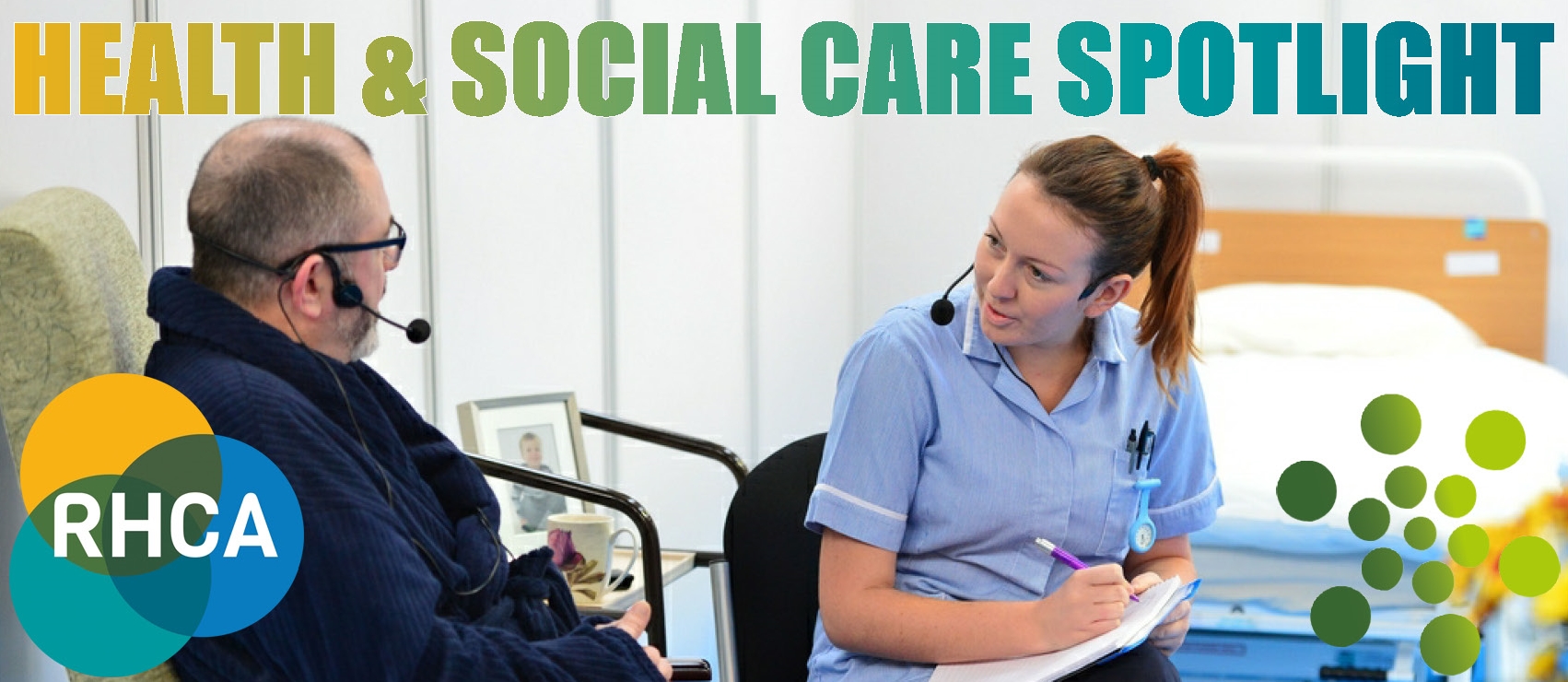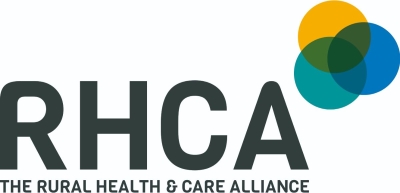
This newsletter on rural health is provided for the RSN and the Rural Health and Care Alliance
It includes a roundup of rural health news, research, learning and best practice. If you have any information you wish to share with other members of the Alliance or case studies that you think others would benefit from, please let us know!
Please forward to colleagues if they are interested in rural health
|
News stories that have been featured on our rsnonline.org.uk website include: Funding available for bus services On 6th February 2020, the DfT has announced that it is seeking bids for three expressions of interest: Commission puts health devolution back on political agenda The Commission, which has been backed by five former health ministers and senior healthcare professionals, will examine if a new model of devolved decision-making is needed to help tackle the increasing demand on the NHS. £1M funding opportunity for organisations in England working with young people With funding from the Department for Digital, Culture, Media & Sport, we will be offering grants of between £3,000 and £20,000 to deliver extra sessions in youth clubs and settings for young people or to enhance and expand existing sessions. Groups who apply do need to be a member of the UK Youth Movement, but can sign up for free before applying. Maddie Dinwoodie, Deputy CEO of UK Youth said: Lives at risk from long ambulance delays 999 calls are meant to be reached in 18 minutes on average. NHS bosses blamed rising demand and delays handing over patients at A&E. Despite increased staffing to try and meet demand, the rise in delays faced by crews queuing outside hospitals is causing problems. Some of the longest waits for the ‘category 2’ – the second most serious level of calls – including those having fits as well as heart attack, stroke and burns victims, exceeded five hours. The publications called for better rural ambulance cover as one Shropshire heart attack victim waited more than two hours for paramedics to arrive. |
|
RSN provide a range of opportunities for colleagues to come together to discuss issues affecting rural health. Member organisations are welcome to attend these events for free. Rural Health and Social Care Meeting Our regional seminar programme includes 7 different events in different regions around the country. These are designed to enable local networking and sharing of best practice. The seminar programme for 2020 has been released and is available here The West Midlands Seminar focusing on Rural Health and Wellbeing is kindly hosted by Stafford Borough Council and will take place on 24th February. A note outlining the key areas discussed during the event will be published in the next Rural Health Spotlight. For more information contact [email protected] |
|
What does integrated care mean for rural communities Integrated Care Systems (ICSs) are bringing together NHS organisations and Local Authorities to work in partnership to improve health and care in their area. NHS England has acknowledged that transitioning to ICSs is ‘complex’, requires a ‘staged implementation’ and they make take several years to fully form. What are ICSs, how are they developing, and what do they mean for rural residents? Jessica Sellick investigates. Whitehall updates the Index of Multiple Deprivation The RSN’s Observatory is the place to discover the statistics behind key issues facing rural communities in England, issues that the RSN is striving to highlight and tackle through its work. The Observatory is additionally a great place to understand the numbers that define the communities within our membership through an expanding group of analyses, with this body of work soon to be given its own area on the RSN website called Member Insights & Analysis. It also includes statistics on Housing, Health & Wellbeing, the Economy, the Environment and Travel and Transport. Recent analysis includes: Walking & Cycling The first analysis shows the frequency with which residents do any walking or cycling for a chosen local authority, and whether it is for leisure or travel. The local authority position is compared to class and classification averages. Click here for more information |
|
Pay us fairly for our overnight shifts, care workers say (11 Feb, 2020, BBC) Bottesford Friendly Bench wins National Lottery backing (9 Feb 2020, BBC) PUBLIC HEALTH ENGLAND GUIDANCE ON CORONAVIRUS |
|
Focus on Linkage Community Trust – The Sensory BusLinkage Community Trust’s Sensory Bus is a single decker vehicle that travels to schools, nursing homes, children’s centres and community groups across Greater Lincolnshire enabling children with Special Educational Needs and the frail elderly (including those with dementia) to access an Immersive Environment. The bus has the technology you’d expect in a Sensory room including fibre optics, a bubble tube, projected images and sounds but also lots of very low cost, often hand- made (by our volunteers) items that enable us to create a range of different environments for users to explore and enjoy. These include Under-the-Sea, Jungle, Garden and Outer Space. Please see our short film here In addition to the bus we also run a small Sensory Library where items of equipment can be borrowed by families and professionals to try out in the home, and we have recently begun the delivery of lego-based therapy. The reasons we deliver this service is because it has the following benefits: For beneficiaries: For families, teachers, carers: For all involved: In 4 years the service has been accessed by over 1,000 clients. Some quotes from users: “The project team listen to what people need and take feedback. They haven’t bought a load of flashing lights which would be nice to look at but not help the children; they’ve found better and often much lower cost alternatives”. “The bus absolutely made the children feel welcome and happy. The children were on “countdown” and would ask every day when the bus was coming back. We witnessed a definite growth in the children after the initial excitement”. “It’s improved their (the beneficiaries) quality of life, reduced problematic behaviour, and improved their access to community activities….and for some it’s completely opened up their world”. An independent evaluation found a return of £5.35 of social value for every £1 invested and that “when the initial capital outlay is removed from the analysis it is estimated that the project could generate £7.45 for every £1 invested in future years”. What we’d really, really like would be a fleet of buses so we could reach more places both within and without Lincolnshire. As this is unlikely to happen, and as part of our long term sustainability plans, we have developed a kit for making a Sensory area in the corner of a room/child’s bedroom. If you are interested in purchasing one please follow the link above. Linkage Community Trust is a Lincolnshire based charity (reg. no: 504913) supporting people with learning disabilities. We are proud to deliver high-quality specialist education care, employment and support services. |
|
Dispensing Doctors AssociationThe Dispensing Doctors’ Association, an active member of the Rural Health and Care Alliance, has published a post-election briefing paper for England outlining the value of dispensing GP practices to rural communities. Newly-elected and returned MPs have been told about the range of ‘extra’ services offered by dispensing GP practices, over and above core NHS GP services. This recognises that specialist healthcare services are often difficult or impossible to access elsewhere locally. Home visits made by rural GPs recognise that access to the surgery can be difficult for many patients. MPs have also been told that rural GPs are also located in the centre of local communities, which allows patients to see a GP when they need to: increasing distance from health services is known to reduce use of primary care services… resulting in higher than expected numbers of deaths and lower than expected survival [rates]. Rural GPs are also able to offer more ‘usual GP’ appointments: when patients can see the same GP more consistently there are fewer hospital admissions. Finally, rural GPs provide much-needed skilled employment and training in areas identified by DEFRA as offering fewer skilled people and less access to training and to employment. The briefing paper, available online here, also includes a case study of the Swan Practice, in Buckingham, to demonstrate the benefits of the dispensing GP service Swan Practice serves the lovely market town of Buckingham and surrounding villages. It’s a large practice, serving 30,000 patients, spread across a wide area of beautiful countryside. The practice is the result of merging three different dispensing practices over the past few years. According to practice partner Dr Ben Burgess, the mergers were challenging, but have been worth it for patients. He says: “We are delivering improved services to patients and feel we are now in a strong position for the long-term.” Each member practice still runs its own dispensary, in response to patient demand for local services, although each has its speciality. For example, one site specialises in making up the dossette boxes that help patients to remember to take their medicines. According to Dr Burgess, this maximises efficiencies for the practice and the NHS and reduces the risk of error. Centralising the teams and processes has taken work, Dr Burgess admits, in order to accommodate the strengths and preferences of different members of the dispensary team, but this has now paid off. Local employers Among the new team is a former dispenser who has moved into the role of clinical quality manager, a key role in overseeing purchasing and liaising with the dispensary and the clinical quality lead GP partners. Other role developments include dispensary supervisors, dispenser-led oversight of high-risk drug monitoring and ensuring patients on problematic drugs have the necessary blood tests in a timely way. Another upskilled dispenser manages higher cost prescribing, such as stoma products and nursing homes, and also deals with the interface prescribing issues that arise due to working with a number of trusts. Dr Burgess notes: “The dispensers have used their skills and enthusiasm to enhance their roles. We believe the new roles are keeping our patients safer and helping the clinicians to feel less pressured.” Maximising investment in health and social care Dispensing, he says, is a win-win for the local economy as well as the NHS, providing employment and career development for local people, and the funding for technology and workforce development to maximise the Treasury’s spend on health and social care in England. Most importantly, dispensing income plays a critical role in enhancing patient care: among the services on offer the practice delivers repeat medications to 97 housebound patients. Dr Burgess says: |
Benefits of walking to health and economy!On Boxing Day, the Government released figures showcasing the health and economic benefits of walking on England’s coastal paths. The data, collected from July 2017 to January 2018 by Natural England, revealed 29.1 million walking trips were made over a six-month period, boosting the economy by £350 million, with day-trippers spending on average £8.65 per day in coastal shops and overnight visitors spending on average £36.73. This supported more than 5,900 full-time equivalent jobs along the English coast. |
 |
What is the Rural Services Network? RSN is a membership organisation and the national champion for rural services, ensuring that people in rural areas have a strong voice. We are fighting for a fair deal for rural communities to maintain their social and economic viability for the benefit of the nation as a whole. |
 |
What is the Rural Health and Care Alliance?The Rural Health & Care Alliance is a membership organisation dedicated to providing news, information, innovation and best practice to those delivering and interested in rural health and care. It has been established through a partnership between the National Centre for Rural Health and Care and the Rural Services Network (RSN) and is affiliated to both the National Centre and the RSN. Members will be kept informed of the National Centre’s activity and the related activity of the RSN on rural health and care and have the opportunity to influence both organisations’ work. |










